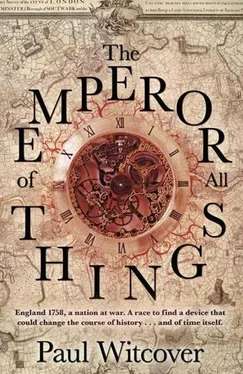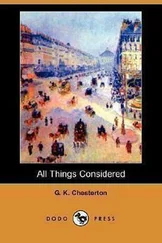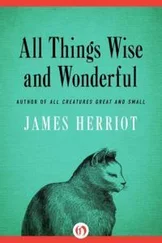The bells of St Mary-le-Bow began to ring out. Quare started then fished out his pocket watch, which displayed a time of nine minutes to ten. He wound the watch and adjusted the hands, gratified to see that the timepiece was still, as it were, within striking distance of the correct hour. Not that the bells of St Mary’s were to be trusted, exactly, but for the moment they were no doubt a more accurate indication of the proper time than his own neglected watch. He wouldn’t encounter a truly trustworthy timepiece until he reached the guild hall. But this would do for now. Amidst all the irregularities of the morning, and indeed the previous night, this small measure of certainty, however imperfect, was most welcome. Though the reminder that he was late and growing later for his meeting with Master Magnus was not.
Meanwhile, other bells had begun to chime in, adding their disparate voices to the hour. The monumental clocks of London, resident in cathedrals and churches, or presiding over public squares, did not keep a common time. They struck askew, filling the air, as now, with a cacophony made worse by the fact that, while the bells of each clock were tuned to produce a pleasant melody, no thought had been given to the effect of a number of pleasant melodies ringing out on top of each other – which, as it turned out, proved neither pleasant nor melodious. A clockcophony, Master Magnus called it. There had been talk of regulating the striking of the hours, so that only one clock’s bells would be heard at a time, but the owners of the various clocks, who had spent large sums of money in building and maintaining their instruments, fought every proposal. Instead, they vied – with the assistance of the Worshipful Company available to all who could afford it – in making their particular clocks either the first or the last to strike, and this incremental competition, which had been going on for years now, with passions swelling in inverse proportion to the ever-smaller intervals of time involved, had served only to render the bells increasingly useless in what was, after all, their primary function: the imposition of a central temporal authority over the city and its environs. At least, so it seemed to Quare and his fellow guildsmen, whose sensitivity to such things was far more acute than that of even the most time-conscious curate or man of business, men who made use of time but did not, so to speak, inhabit it as Quare and his fellows did.
He could delay no longer. Telling himself that he was being foolishly suspicious, he took a deep breath and came out into the street. Though he felt as if a hundred hostile eyes were following him, he reached the boarding house without incident and entered, only to find himself face to face with his landlady, Mrs Puddinge, who drew back from the door with a small shriek of surprise, her face going as white as her apron. In her fifties, the childless widow of a master in the Worshipful Company of Clockmakers, she was a merry matchstick of a woman who took a lively maternal interest in her ‘young men’, as she called them.
‘Merciful God in heaven, is it you, then, Mr Quare?’ Mrs Puddinge’s brown eyes narrowed beneath her cap as she took in his dishevelled state. ‘Lord bless us, but he told me you were dead!’
‘Dead?’ Quare echoed, the surprise now on his side. ‘What do you mean, Mrs P? Who told you?’
She pursed her lips, giving her face the aspect of a shrivelled prune. ‘Why, your friend and fellow guildsman, Mr Aylesford. He told me there was a brawl last night at the Pig and Rooster. How often have I warned you young men against that den of iniquity?’ Tears sprang to her eyes, and she wrung her hands in the folds of her apron. ‘He told me you were all killed.’
‘All?’ Quare’s brain was reeling.
‘Mr Farthingale, Mr Pickens, Mr Mansfield and yourself.’ She raised the apron to dab at her eyes. ‘He said some young lords started it, and that they were killed as well. Made it sound a regular massacre, he did! And now here you are, a bit worse for wear but still among the living, after all! Why, ’tis a miracle! That’s what it is. A blessed miracle. And the others? Are they also alive and well?’
‘I-I don’t know,’ he stammered, trying to make sense of things. ‘We were separated … When did Mr Aylesford tell you this?’
‘Why, not half an hour ago! The poor lad was beside himself with grieving. Said he’d come straight from the guild hall, with orders to clear out your room before the city watch could trace you here. Seems the masters are afraid of scandal. They know where the blame will fall, with aristocrats and journeymen among the dead!’
An icy quiver ran down his spine. ‘You let Aylesford into my room?’
‘And why would I not? With you dead and him about the business of the Company?’
‘But I’m not dead!’ Nor, Quare was beginning to think, had Aylesford been about Company business – now or ever.
‘Oh, aye, and God be praised for it. But how was I to know that at the time? Go up, Mr Quare, and surprise him! The poor lad will be overjoyed to see you, I’ll warrant. Quite downhearted, he was.’
‘What, is he still here?’
‘Unless he’s gone out by the window. I— merciful heavens!’
Quare pushed past Mrs Puddinge with a hasty apology, mounting the stairs two at a time, then strode down the empty third-floor landing and flung open the door to his room.
It was as empty as the landing. His trunk was open, his things strewn across the floor. Quare crossed to the open window, which gave onto an alley behind the boarding house, but there was no sign of Aylesford below. Cursing under his breath, he turned back to survey the mess Aylesford had left behind … only to see the man himself step from behind the door, closing it with the heel of his boot.
‘Mr Quare, as I live and breathe,’ said Aylesford wonderingly, sword in hand.
‘Not for long,’ said Quare, shrugging out of Clara‘s cloak and drawing his own sword, ‘unless you supply some answers, and quickly. What are you doing here? What happened last night? Where are Pickens and the others?’
‘You have a lot of questions for a dead man.’
‘You are overconfident, sir. You will not find me an easy mark.’ Quare hoped he sounded more certain of that than he felt. Up until yesterday, he had never drawn his sword in earnest. Now, for the third time in as many days, he was facing an armed foe: first Grimalkin, a fight he had been lucky to win, much less survive; then last night, at the Pig and Rooster, a fight he barely remembered; and now, facing a man he felt sure was not what or who he claimed to be.
Aylesford gave a nervous titter. ‘Why, I left you stabbed through the heart in that harlot’s bed! I made sure of it. Are you a ghost, then? I’m not afraid of you! I’ll send you straight back to hell!’
Yet he did not attack, or even step forward. And, Quare noticed, his sword arm was trembling.
But Quare did not move, either. He was trying to construe the man’s words. He remembered what Clara had told him she had witnessed during the night, only it seemed, at least according to Aylesford, that what she had taken for an act of sodomy had in fact been murder. And yet, despite Aylesford’s apparent confusion and fright in encountering him here, alive, Quare couldn’t credit such an outlandish claim. How could he? Stabbed through the heart? It was preposterous, insane. He had no memory of being stabbed or of any struggle whatsoever. It made no sense. A man did not die and then rise again to walk among the living. But then how to explain Aylesford’s seeming certainty or his evident fear? What kind of game was the man playing? ‘You are no journeyman of the Worshipful Company,’ he said, forcing his mind along more reasonable lines of inquiry.
Читать дальше












